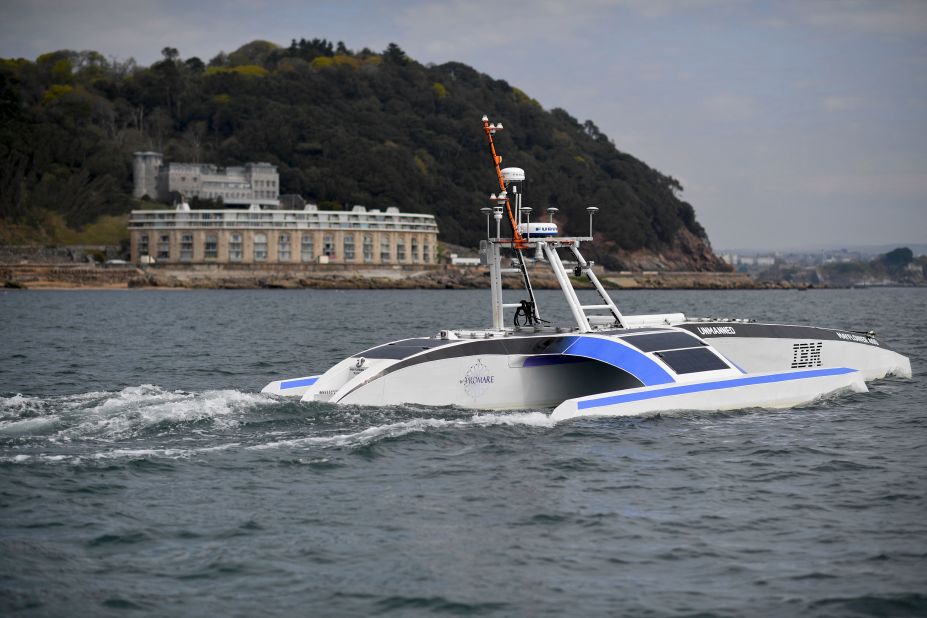In the picturesque municipality of Värmdö, nestled among 10,000 small islands near Stockholm, Sweden, the daily school commute is about to undergo a remarkable transformation. Commencing this December, students in this archipelago will have the opportunity to ride aboard the X Shore Pro, a groundbreaking electric boat, often referred to as the “Tesla of the seas.” With a length of 26 feet (8 meters) and a seating capacity of up to 10 individuals, this innovative watercraft boasts an impressive top speed of 30 knots (approximately 35 mph) and a range of approximately 100 nautical miles (around 115 miles). What truly sets it apart is its status as a fully electric vehicle, producing zero emissions and minimal noise, thereby offering a smoother and more environmentally friendly mode of transportation.
Prioritizing Student Well-being and Environmental Conservation
Maria Niläng, the principal of the Värmdö Archipelago Schools, expressed her enthusiasm for this initiative, stating, “We believe in prioritizing the health and well-being of our students and the environment. With this innovative electric school shuttle boat, we’re not just providing efficient transportation; we’re pushing for a cleaner society and a brighter, healthier future for our students.”
A Glimpse into X Shore’s Journey
Founded in 2019, X Shore has been at the forefront of the electric boat industry. Prior to the X Shore Pro, the company introduced two electric leisure boats, the high-performance Eelex 8000 and the compact X Shore 1. The X Shore Pro, designed for commercial operations and coast guard use, draws inspiration from its predecessor, sharing many of its specifications.
Jenny Keisu, X Shore’s chief evangelist officer, points out the pivotal moment in their journey, likening it to Tesla’s impact on the automotive industry. She recalls, “I think the reason why we are being compared to Tesla is that when we released our X Shore 1, that was the first time you could buy a high-performance electric boat at the same price level as a car.” While the X Shore 1 starts at €109,000 (approximately $119,000), the more advanced models in their lineup begin at €195,000 (approximately $213,000).
A Transformative Boating Experience
Riding aboard an X Shore boat promises an entirely new and delightful experience compared to traditional motorboats. Keisu emphasizes the differences, saying, “On a normal motorboat, you have fumes, so it smells like you’re standing behind a car, which can make you feel sick. We don’t have anything like that. We also don’t have any noise, so you can get out to sea and talk to people, or listen to your favorite music.”
The boat’s power comes from lithium-ion batteries, which, while similar to those found in electric vehicles, are specifically certified for the marine environment to ensure safety. These batteries can be rapidly charged using a supercharger in just 30 minutes or on standard equipment commonly available in marinas. Alternatively, they can be charged using a household electric outlet, although this method requires significantly more time, typically ranging from two to five hours.
The Call for a Greener Boating Industry
Keisu stresses the need for the boating industry to transition towards electric propulsion. She explains, “The boating industry should do more to transition [to electric vehicles] because boating is much worse for the environment than cars — the average leisure boat emits around four times as much CO2 as the average car.”
Challenges on the Path to Electric Boating
While electric propulsion in boats isn’t a novel concept, technological constraints, such as limited battery energy density, pose challenges similar to those faced by the automotive industry. Timothy McCoy, an engineering professor at the University of Michigan, points out that the energy density of batteries remains a key limitation in both sectors. Brandon Taravella, an engineering professor at the University of New Orleans, concurs, stating, “Batteries are currently just too heavy for the amount of energy that they provide.”
Despite these challenges, boats and ships with combustion engines are beginning to encounter restrictions in various water bodies worldwide. Amsterdam, for instance, plans to ban diesel and gasoline engines from its canals starting in 2025. Norway also intends to implement zero emissions requirements for cruise ships, tourist boats, and ferries in its UNESCO World Heritage fjords by 2026.
A Call for Support
Keisu believes that significant progress can be made swiftly if governments and politicians step in. She says, “We need politicians and governments to push either with subsidies or with bans because this needs to happen.”
In conclusion, the introduction of the X Shore Pro, often hailed as the “Tesla of the seas,” in Sweden’s Värmdö Archipelago Schools marks a significant leap towards eco-friendly and noise-free student transportation. X Shore’s commitment to revolutionizing the boating industry aligns with the global shift towards sustainability and cleaner energy sources.




















+ There are no comments
Add yours